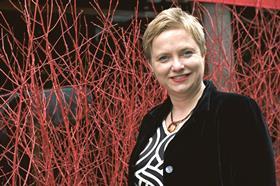American-Austrian Jewish refugee Maria Altmann turned to international arbitration for the restitution of five Gustav Klimt masterpieces, including the world-renowned portrait of Adele Bloch-Bauer. In 2006, an arbitral court held that the state of Austria never acquired ownership of the artworks after the Nazis illegally expropriated them from Altmann’s family during the second world war. In Republic of Austria v Altmann the parties agreed to a panel of three Austrian arbitrators seated in Vienna, and that their decision would be binding with no right of appeal. Austria was keen to avoid a costly and lengthy court action in the US after the US Supreme Court ruled that the country could be sued there.
The Altmann case – brought to the screen by Helen Mirren in The Woman in Gold – is one of the more colourful examples of international arbitration. Companies, including multinationals, are more likely than individuals to bring arbitration claims against states for direct or indirect expropriation, or other detriment to their investments.
Recent years have seen a rise in investment treaty arbitrations through the controversial investor-state dispute settlement (ISDS) mechanism. In 2015, a record 74 cases were started (62 in 2016), according to Unctad, in arbitrations largely administered by the International Centre for Settlement of Investment Disputes (ICSID). The highest settlement so far is $5bn, between Spain’s Repsol and the government of Argentina.
Also on the rise are international commercial arbitrations between private parties that deal with cross-border commercial transactions that have turned sour.
Some 90% of respondents to the most recent international arbitration survey by Queen Mary University of London said that international arbitration was their preferred dispute resolution method, either alone or together with other forms of dispute resolution such as negotiation and mediation.
‘All of the institutions are showing a trend, year on year, of an increasing caseload,’ says Jeremy Wilson, partner and co-chair of Covington’s EU litigation practice.
Last year, the International Court of Arbitration of the International Chamber of Commerce (ICC) recorded the second-highest number of new cases in its 93-year history: 966 were filed for administration under ICC rules in 2016, representing a 21% increase on the previous year. The Singapore International Arbitration Centre (SIAC) received 343 new cases in 2016, a 27% rise since 2015. Meanwhile, 52 new cases were registered by ICSID in 2015 – the highest number since its creation in 1966.
As Wilson notes: ‘It’s not just the institutions, but also the hearing centres,’ pointing to London’s International Dispute Resolution Centre, which saw a big expansion in the volume of business and the size of hearings over the last decade (a 25% increase in 2016).
Covington’s London practice has grown on the back of this trend. ‘Since I have been at the firm there has been a steady increase in instructions,’ says Wilson, who joined Covington from CMS Cameron McKenna in 2013. The firm is representing Ukraine’s state-owned oil and gas company, Naftogaz, in an investment dispute with the Russian Federation worth $1.6bn.
Nicholas Fletcher QC, a barrister and arbitrator at 4 New Square, notes that there has been a ‘proliferation’ of new centres around the world, and offshoots of the more established arbitral institutions. For example, the Paris-based ICC International Court of Arbitration has offices in New York, Singapore, Shanghai and Sao Paulo. The London Court of International Arbitration (LCIA) has offices in Dubai, Mauritius and New Delhi.

So why is arbitration on the rise? First, it is considered a neutral forum. Stephen Bond, Covington’s senior of counsel, a specialist in international commercial arbitration, says: ‘When I started practising in New York, every contract that was written had New York law and New York courts. American corporations had the whip hand and the power to force other parties into agreeing to that. But now economic forces are much more equal, so there is no one country that can pull the other side into its own courts and its own law.’
Foreign companies can seek to avoid local courts if they perceive them to be corrupt or ineffective. Michael McIlwrath, global ch ief litigation counsel for the GE Oil & Gas division in Florence, explains: ‘In Italy we don’t worry about corruption [in the judiciary]. What we worry about is inefficiency. It takes years for cases to be decided, and so the practice, even among Italian companies in business-to-business disputes, is regularly to use arbitration.
‘We have a very big presence in Nigeria, but that doesn’t mean we want to be in a Nigerian court. [That’s] a very obvious place where we would very much prefer international arbitration. It’s fair for us and it’s fair for the other side.’
Another plus is that most arbitrations are a one-stop shop, says Bond: ‘You get an award and the vast majority of those awards are honoured, or at least form the basis for a settlement. In litigation, you not only have the court of first instance, but you can have one appeal, sometimes two.’
The meteoric rise of the Asian economies is also driving global international arbitration.
‘We are seeing more parties in Asia that are willing to arbitrate, whereas historically there may have been a culture of preference towards mediation and settling these disputes,’ Wilson says. ‘In the course of the last three years most of our disputes have had an Asia connection, whether it’s related to a dispute in Asia or one of the parties is based there.’ Covington is representing an international media company in Hong Kong International Arbitration Centre (HKIAC) arbitration proceedings that relate to one of the most watched television shows in China.
The Hong Kong and Singapore centres have done ‘a very good job’ in promoting arbitration in Asia, Wilson says. Companies from the region now feature prominently in arbitrations elsewhere: in 2016, the ICC saw a 22% increase in party representation from south- and east-Asia, with a record 82 parties from Korea; 14.3% of the parties to arbitrations commenced under the LCIA rules were from Asia, including India.
Arbitral awards are also more easily and consistently enforced in foreign courts than judgments from foreign courts.
‘What is often overlooked is that arbitration awards can be enforced in countries where it is not feasible to enforce, for example, a High Court judgment,’ says Fletcher, pointing to the 1958 New York Convention on the Recognition and Enforcement of Foreign Arbitral Awards. ‘You can enforce an arbitration award rendered in England in Moscow against a Russian party, [but] you couldn’t enforce a High Court judgment in Russia.’ Parties from the Russian Federation accounted for over 10% of LCIA-administered arbitrations in 2015, and 5% last year.

As Christopher Harris, barrister at 3 Verulam Buildings, observes: ‘The New York Convention has pretty much every country in the world as a party to it.’ Non-contracting states, including Lybia, Iraq, Ethiopia, Somalia and Zimbabwe, number fewer than 20.
For Wolf von Kumberg, former assistant general counsel at Northrop Grumman Corporation, the New York Convention ‘more than anything, has preserved arbitration as a preferred method of dispute resolution in the international arena’.
Moreover, arbitration is private, albeit not always confidential. To have an arbitral award enforced, a party may have to go through public courts, and therefore lose confidentiality, McIlwrath points out. And as Fletcher notes, no investment treaty arbitration is confidential.

Finally, arbitration is considered a flexible tool that parties can ‘mould’, both when drafting their dispute resolution clause and during the arbitration. ‘It is a party-driven process,’ says Freshfields Bruckhaus Deringer partner Will Thomas. ‘You have party autonomy and control of the process, so you can tailor it.’ It also means, he adds, that ‘it can evolve with the times’ and react to criticism, particularly over cost and delay.
Third-party funding in arbitration has grown on the back of investor-state dispute settlement (ISDS) provisions of treaties. But investment treaty arbitrations have come in for criticism. Partly in response to large-scale popular opposition, EU president Jean-Claude Juncker called the arbitral tribunals dealing with them ‘secret courts’, and asked that the ISDS process be removed from the Transatlantic Trade and Investment Partnership. The controversies surrounding ISDS might explain why third-party funders are seeking other ways to grow business out of arbitration.
Third-party funding

‘Given the increase of investor-state claims over the course of the last 10 years, there has been an increase in third-party funders,’ says Jeremy Wilson, partner and and co-chair of Covington’s EU litigation practice. The legal bill for taking on a state can no doubt be hefty – hence the need for extra funds.
Third-party financiers are now increasingly reaching out to businesses – small and large – in international commercial arbitrations. ‘Businesses have tight budgets and the advantage of third-party funding is that it insulates [them] from the risk of extensive costs,’ says Nicholas Fletcher QC, a barrister and arbitrator at 4 New Square. ‘They know that a funder is going to put up the money, or a significant proportion, to fight the case, and if they are successful they will give up a proportion of the damages. They regard that as an acceptable trade-off for the knowledge that their costs are limited.’
Susan Dunn (pictured), head of litigation at Harbour Litigation Funding, says arbitration accounts for about 10% of its funding portfolio, and ‘it just keeps going up’. Of the 40 applications for funding received monthly, about 15% are for arbitrations, up from ‘almost none’ five years ago. Parties to international commercial arbitrations tend to self-fund and are ‘late adopters’ of third-party funding. But among those who seek third-party funding are large companies, as general counsel are under pressure to cap costs, she says.
So how does third-party funding work? Harbour will not consider claims valued at less than £10m. If the claim is settled or won – and only if money is collected – the funder will typically take a 15%-35% share of the proceeds (or damages) which is agreed up-front depending on the overall amount of the claim, budget size and expected time to resolve the case. If the case is unsuccessful, Harbour will take the loss. Legal bills are paid monthly by Harbour, which also deals with after-the-event insurance to cover adverse costs, but does not control the way the arbitration is conducted.
The centre cannot hold
Despite the rising popularity of international arbitration, it faces challenges.
As Fletcher points out: ‘The ICC, LCIA and probably the American Arbitration Association still attract the lion’s share of administered arbitrations [as opposed to ad hoc arbitrations, which do not involve an arbitral institution].’
But there has been a decentralisation of the offer. ‘[The main arbitral centres] are not growing as much as the non-central locations,’ says McIlwrath, referencing Yeats: ‘The centre cannot hold. They are not able to contain the demand for arbitration and much of this work is going to different locations, emerging markets, to South America, Africa and other parts of Asia. I could give you a list of 20 cities today and we would be fine to conduct arbitration in any of them.’
The ICC may be bucking the trend, but the number of disputes referred to the LCIA grew by just 1.4% (to 643) in 2015/2016.
‘Historically, you would look at the safe and well-respected neutral jurisdictions around the world, like Sweden, Switzerland, London and Paris, but [now] there are more regional centres, which are growing up,’ says Clyde & Co partner Anthony Albertini. He points to SIAC and the Mauritius International Arbitration Centre (for far eastern and African disputes respectively), HKIAC and the China International Economic and Trade Arbitration Commission, which is trying to promote arbitration in China.
English law is arguably the most popular for cross-border commercial contracts but, as Albertini explains, parties can choose any institutional rules, regardless of the governing law. They can have their contract governed by English law, but agree to a SIAC arbitration.
Arbitral institutions not only have to contend with rising competition, but also user complaints about cost and delay. Cost is by far arbitration’s ‘worst feature’, 68% of respondents to the Queen Mary survey said. Other criticisms include ‘lack of insight into arbitrators’ efficiency’ and ‘lack of speed’.
In the past, arbitration was considered to be ‘faster and less expensive than litigation’, especially when the English Commercial Court and the Technology and Construction Court (or at least its predecessor) were ‘bogged down and cases could take several years’, says von Kumberg, a member of ArbDB Chambers, which focuses on mediation, arbitration and dispute boards.
‘This is no longer the case after the Woolf reforms because mediation is now accepted as routine in most cases, leading to a high settlement rate, and adjudication is resolving most construction cases without the need for arbitration,’ he says. ‘In fact, arbitration is now seen as a more cumbersome process, and certainly more expensive than the courts.’
A number of arbitral centres, including SIAC, HKIAC, the Swiss Chambers Arbitration Institution and the ICC have introduced fast-track arbitration procedures to increase transparency and efficiency. The ICC’s new ‘expedited procedure rules’, introduced in March, automatically apply to arbitrations where the sum in dispute is below $2m, and to higher-value cases on an opt-in basis. It is understood that about 40% of ICC-administered disputes are worth less than $2m.
Under the new rules, the ICC court will normally appoint a sole arbitrator, even if the arbitration agreement provides for a three-member arbitration tribunal. Awards must be made within six months of the case management conference, with extensions granted only in limited circumstances.
‘It just makes all the sense in the world. It’s a bit of a shock for people who said in contracts that they wanted three arbitrators, and the institution says ‘‘I don’t care, you’ll only get one’’. But you need that. It was a bold move,’ says McIlwrath, pointing to other recent changes. In June last year, the ICC court introduced new rules to reduce arbitrator fees for ‘unjustified delays’ in submitting the draft arbitration award to the court (by up to 20% or more). For all cases registered from 1 January 2016, it also began to publish on its website arbitrators’ names, nationalities and whether the appointment was made by the court or by the parties, and which arbitrator is the tribunal chairperson.
‘We feel that their case management is pretty strong. They do a very good job in terms of keeping arbitration tribunals on track, whereas other arbitral institutions tend to be a bit more off-hand,’ McIlwrath says.
The mean duration of an arbitration administered by HKIAC under its rules is 12.25 months, compared with 13.8 months at SIAC and 20 months for the LCIA. ‘The facilities are excellent,’ Wilson says, ‘and the cost has been very reasonable.’ The mean total cost of an HKIAC arbitration is $65,721, compared with $80,337 for SIAC and $192,000 for LCIA. The ICC would say only that on average, ICC awards are made between 18 and 24 months from the request of arbitration.
‘The LCIA is more efficient than the ICC,’ says one lawyer who prefers not to be named. ‘I find that the ICC can have tremendous delays in the institution – six to eight weeks, if not more, for scrutiny of the award [for example].’ The ICC has introduced measures to reduce administrative fees in case of unjustified delays in the scrutiny process caused by the court itself.
International arbitration has long been prevalent in certain industries such as energy, construction and infrastructure, and shipping. ‘In oil and gas you sometimes have 25-year contracts, where parties really don’t want to fall out four years in,’ Thomas says. ‘They want a dispute resolution mechanism which allows them to stay friends, as it were. If there is a bump in the road, they fix it and move on. Arbitration could be quite good for that.’
But it is much less popular among banks and other financial institutions, which tend to prefer the national courts of big financial centres such as New York, London, Frankfurt and Hong Kong. In a recent study, the ICC found that the sector was put off by arbitration’s ‘perceived limitations’ such as unavailability of emergency relief, summary judgments and lack of binding precedents.
The ICC study states that its rules, ‘like the rules of most other arbitral institutions, now provide a procedure for the appointment of an emergency arbitrator to consider applications for interim relief before a tribunal is constituted’. Furthermore, ‘in the sub-industries where precedent-setting is important, an industry-wide standard could be agreed, mandating institutions to publish redacted awards with the parties’ agreement.’ These problems can also be tackled in the drafting of arbitration clauses and other agreements, according to the ICC.
Arbitration needs to modernise in other areas. ‘There is a lack of diversity,’ says Thomas, who points to the Arbitration Pledge, an initiative launched in 2016 by Freshfields partner Sylvia Noury and Wendy Miles QC at Debevoise & Plimpton to promote equal representation in arbitration. There are currently 1,800 signatories, including the ICC, SCC, WIPO and LCIA; 20% of arbitrators appointed in 2016 at the LCIA were women.
The world is not standing still while arbitration evolves. National courts in London, Singapore and other major cities are competing for business. Furthermore, ‘contracts are becoming more sophisticated’, says Albertini, pointing to the increased popularity of ‘tiered’ or ‘stepped’ clauses, which introduce prior steps to arbitration, including negotiation and mediation. ‘It might mean that arbitration is the end of the process, and not the immediate first step,’ he says.
Albertini, who specialises in construction and engineering cases, adds: ‘In the UK construction industry we have a much shorter process called adjudication. It is a 28-day process in which decisions are made very quickly and they are interim-binding so that if a party is not satisfied with the adjudicator’s decision, they can go on to arbitration.’
He highlights another emerging trend, particularly in the public sector: ‘Clients such as Transport for London and Network Rail are introducing early intervention or conflict-avoidance procedures into contracts that aim to nip disputes in the bud well before they go off to a formal [process] such as arbitration or court proceedings.’
‘Relationships in our world are very important,’ says McIlwrath of the oil and gas industry. ‘Our standard contracts have an ICC mediation requirement before you go to an ICC arbitration. Currently, we probably have one ICC mediation for every case that ever winds up in arbitration,’ he says.
Meanwhile, final offer or ‘baseball arbitrations’ – another ADR process – are on the increase, Wilson reports. This trend is in line with parties’ need to reduce the time and cost of disputes, and promote early and amicable settlement.
Leaving the EU
What about Brexit? Will it affect London as a pre-eminent arbitration hub? The UK capital is the ‘most preferred and widely used’ international arbitration seat ahead of Paris, Hong Kong, Singapore and Geneva, according to the Queen Mary survey. London has ‘thrived as a popular place to arbitrate’ since the introduction of the Arbitration Act 1996, von Klumberg says: ‘The reason for this was that there was a clear recognition that the courts should have minimal overview and intervention powers over arbitration, which had not been the case under previous legislation.’
Other advantages London has include English law (42% of respondents to the Queen Mary survey linked seat preference to governing law); and ‘excellent venues for arbitrations, as well as a respected legal community to advise parties, participate as counsel and sit as arbitrators,’ von Kumberg adds. ‘Brexit might even enhance London’s role as a venue, given that foreign parties will see it as being even more independent of the European Union and any [EU law] restrictions.’
McIlwrath highlights ‘the strong emphasis’ in England and Wales on ‘good faith’ engagement in mediation and CPR Part 36, which encourages litigants to settle disputes: ‘It has a positive knock-on effect on London’s reputation as a centre for arbitration.’
Bond notes: ‘[Brexit] could affect the enforceability of an English court judgment in the EU.’ Under the Brussels I Recast Regulation a court judgment in civil and commercial matters in one EU member state is automatically recognised and enforced in other member states. Post-Brexit, the UK may no longer be party to the regulation, but the enforcement of arbitration awards under the New York Convention is likely to be unaffected. ‘Losing that automatic enforceability would diminish the attractiveness of litigation before English courts [and] I would think that could only increase the attractiveness of arbitration.’
Still, Brexit sends a bad message that ‘Blighty’ is a ‘parochial little island’, Harris says. Brexit may reduce the pool of talented, international lawyers practising in London. ‘One of the side-effects of Brexit may be to have a new ridiculous immigration policy which will seriously damage London’s standing,’ he adds.
Brexit may also deter continental European arbitrators who come to London for hearings. ‘If Albert Jan van den Berg and Bernard Hanotiau, when they come over from Brussels to sit in London for a hearing, have to start getting visas, it becomes much more logistically complex. They are much more likely to say, well, let’s just do the hearing in Paris. Paris is fighting for that business.’
Arbitration has never been bigger business for lawyers, but its prospects may be dented by improvements in court systems in Britain and elsewhere, other forms of ADR – and possibly Brexit. Cost, speed and transparency, as always, are key.
In numbers
74 and 62 - Number of ISDS cases started in 2015 and 2016 respectively
$5bn - Size of biggest settlement to date, between Spain’s Repsol and the government of Argentina
90% - Percentage of respondents to Queen Mary University of London survey for whom international arbitration is the preferred method of dispute resolution
966 - New cases filed for administration under ICC rules (2016) – a 21% annual rise
343 - New cases received by Singapore in 2016 – a 27% increase on 2015; 90% of cases filed were administered by SIAC
52 - Record number of cases registered by ICSID (2015)
643 - Number of disputes referred to the LCIA in 2015/16
$65,721 - Average cost of dispute in Hong Kong
$80,337 - Average cost of dispute in Singapore
$192,000 - Average cost of dispute in LCIA
12.25 - Mean duration in months of average Hong Kong dispute
13.8 - Mean duration in months of average Singapore dispute
20 - Mean duration in months of average London dispute
18-24 - Mean time lag for ICC awards from the request of arbitration
Marialuisa Taddia is a freelance journalist




























No comments yet